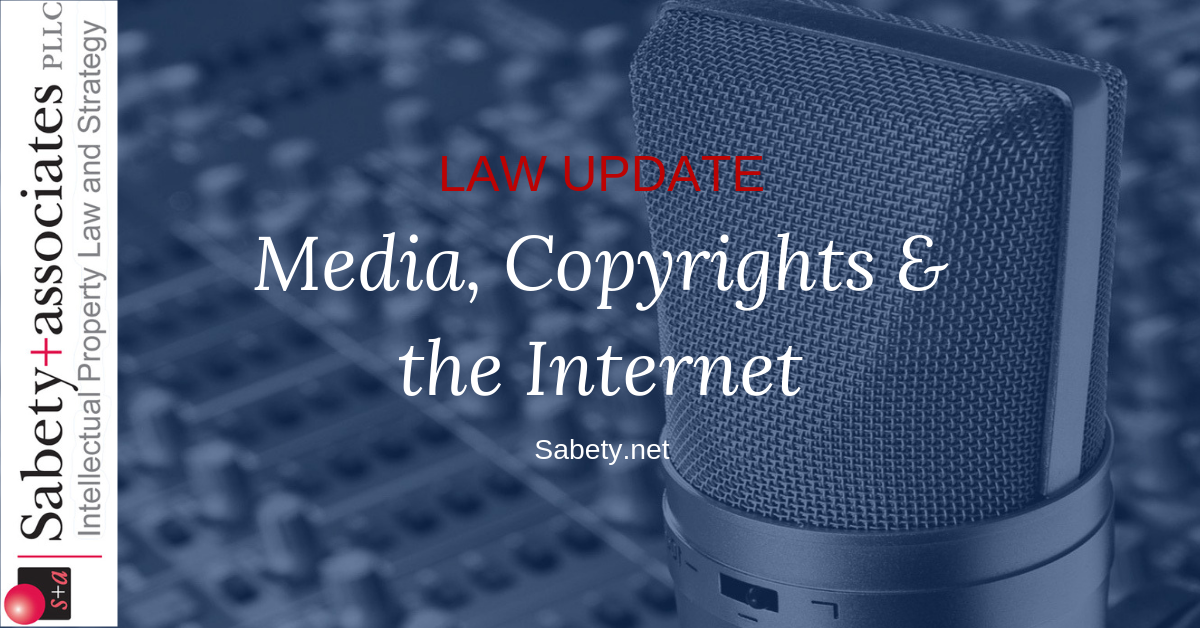Federal Communications Commission considers a mandate for a digital copyright protection scheme.
On August 9, 2002, the Federal Communications Commission (F.C.C.) released its Second Report and Order, In the Matter of Review of the Commissions Rules and Policies Affecting the Conversion to Digital Television.”i In essence, the ruling requires that by July 2007, 100% of the television receivers and “TV Interface Devices” that are sold in the U.S. (defined to include DVD players and recorders as well as VCRs, and presumably any other similar devices) have a digital television “tuner” (“DTV tuner”) embedded in the device, with a phase-in period commencing in July 2004. The “DTV tuner” is primarily a bundle of software protocols and data formatting standards that together create the keystone to interoperability between digital television broadcast equipment and consumer digital television receivers and recording equipment. Both the transmission and receiving devices will have to properly implement standard protocols. According to the F.C.C., it is acting because the conversion of analog television into an all-digital medium has occurred far more slowly than the commission would prefer.
On the same day, the F.C.C. issued a companion “Notice of Proposed Rulemaking, In the Matter of Digital Broadcast Copy Protection.”ii According to this document, the F.C.C. believes that one of the most significant impediments to the adoption of digital television is the relative dearth of digitally broadcast content. The F.C.C. identifies the cause of this by reference to the statements of several major media companies that they will not license their copyright properties for digital television broadcast without adequate copyright protection being built into the system. iii Although the F.C.C. has already recognized the central importance of copyright protection to the resolution of the digital television conversion conundrum, it has now started the process of exploring its own “mandate” to define a copyright protection scheme “on the transmission side,” (which would necessarily require compliance by the receiver side by definition, i.e. the DTV tuner) and in television receivers and recording equipment in order to quickly resolve the related open issues that industry players have not yet resolved on their own.iv This is after having already issued a ruling that requires the hardware and/or software containing this scheme, i.e. the DTV tuner, to be included in all television receivers starting in two years.
While the F.C.C. “seeks comment on whether a regulatory copy protection regime is needed within the limited sphere of digital broadcast television,”v it is important to note that whatever copyright protection scheme might be adopted by the F.C.C. will likely have far-reaching impact beyond digital broadcast television, per se. For example, after the consumer electronics manufacturers have made the investment required to incorporate the mandated DTV tuner and copyright protection scheme into their products, there may be tremendous pressure on the copyright industries to then license their properties for digital broadcast and distribution– regardless of whether the copyright industries ultimately approve of the adequacy of the mandated protection scheme. In addition, the television broadcasting industry, who will have invested in the transmission side equipment, may be eager to offer ancillary media delivery services to the new recording devices distributed by the consumer electronics manufacturers that contain the mandated copyright protection.vi Once the mandated protection scheme is adopted, the consumer electronics manufacturers may resist the adoption of additional stronger copyright protection to service distribution of whatever is considered non-television content — especially if that content is distributed over or to the same equipment or new products designed to connect to the television-related devices.vii
Digital television technology companies and consumer electronics manufacturers will also be affected by any F.C.C. mandate. For example, it may require that companies license new intellectual property from those who own the rights in the copyright protection scheme that the F.C.C. decides to adopt — possibly from their competitors. In addition, existing digital television systems may have to be re-engineered and re-deployed in order that they contain the proper capabilities. Besides the non-recurring engineering costs of adoption, the time period set by the F.C.C. is so short that it appears to require that engineering of the DTV tuners begin almost immediately.
These are among the many issues raised by the F.C.C.’s report and order and the notice. If you have any questions about this subject and its implications for your business strategy, please feel free to contact me.
T.S.

